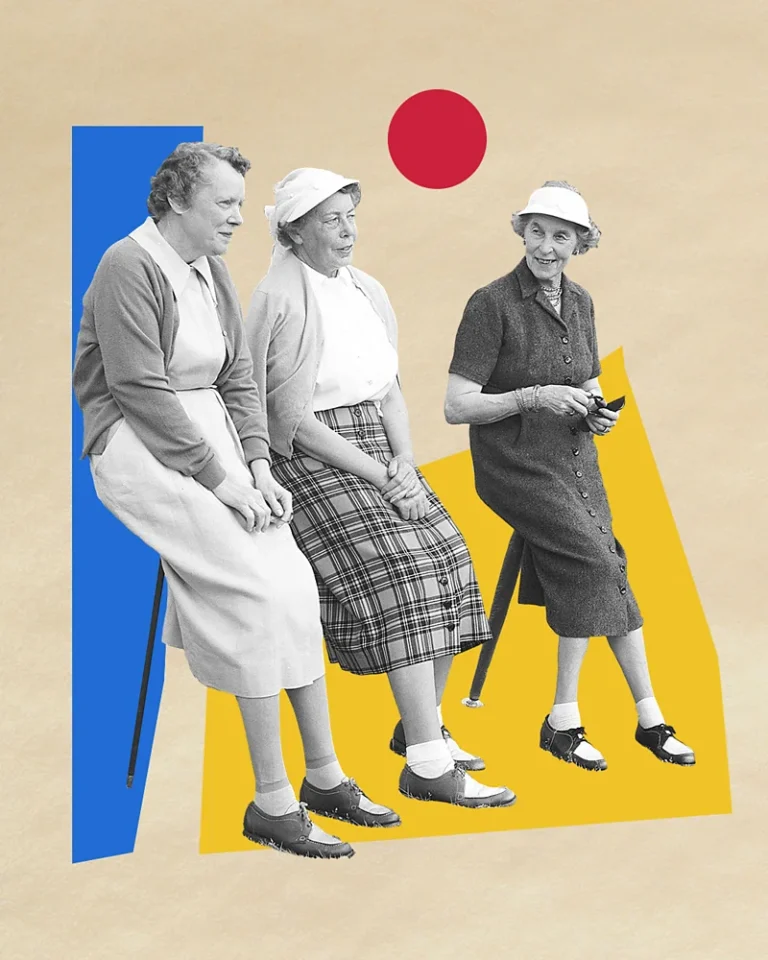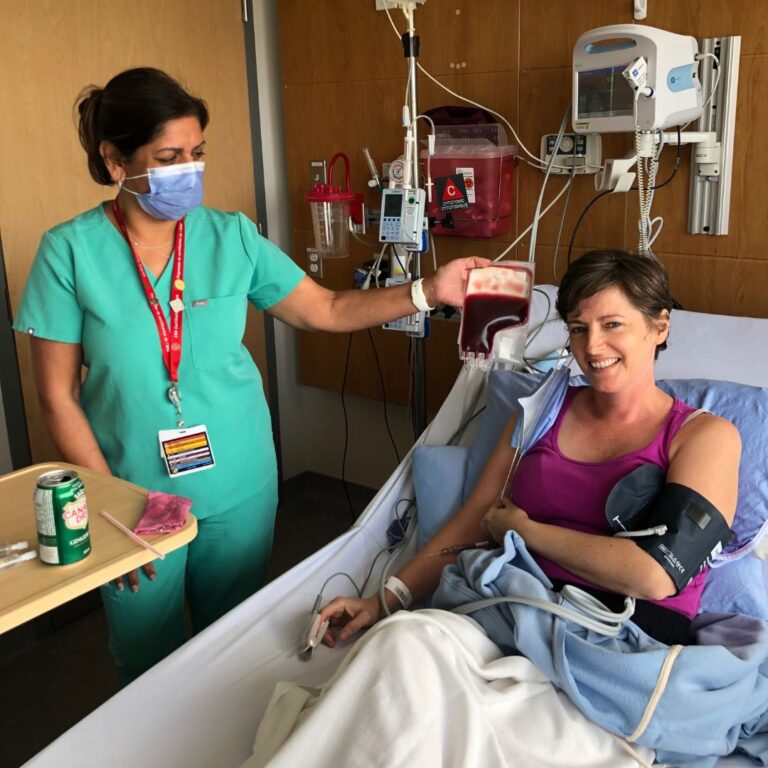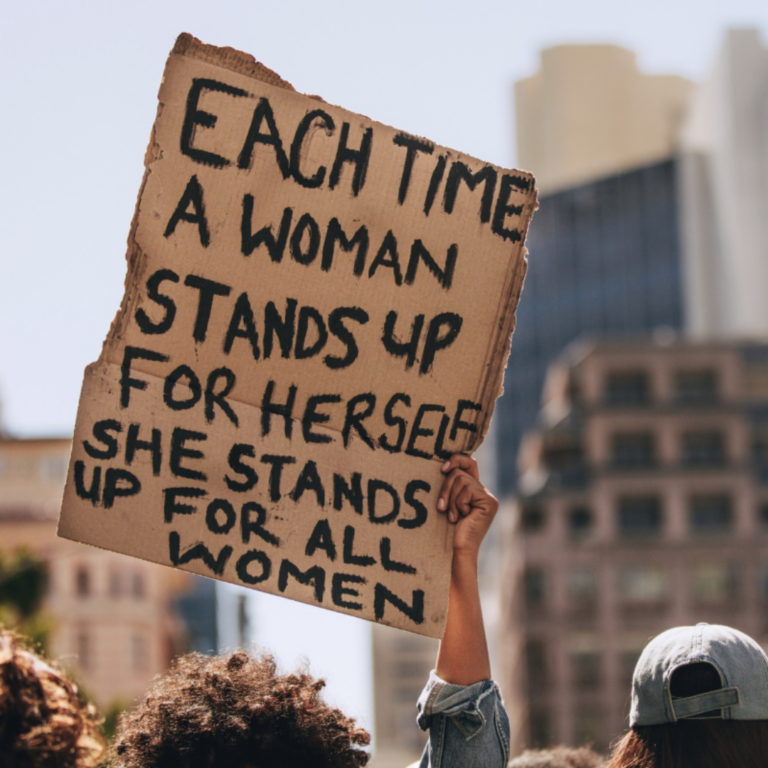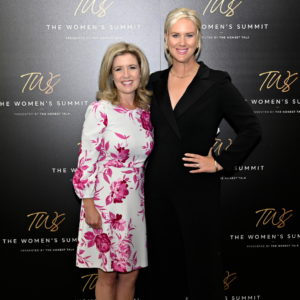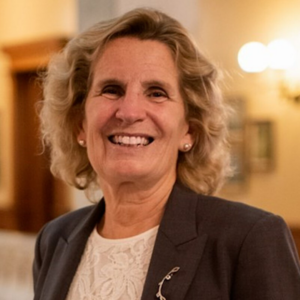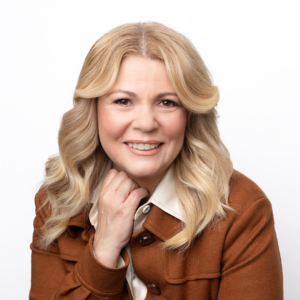‘The bottom fell out of the world’: Lisa Raitt’s story of navigating her husband’s young-onset Alzheimer’s
Relationships30.10.2024
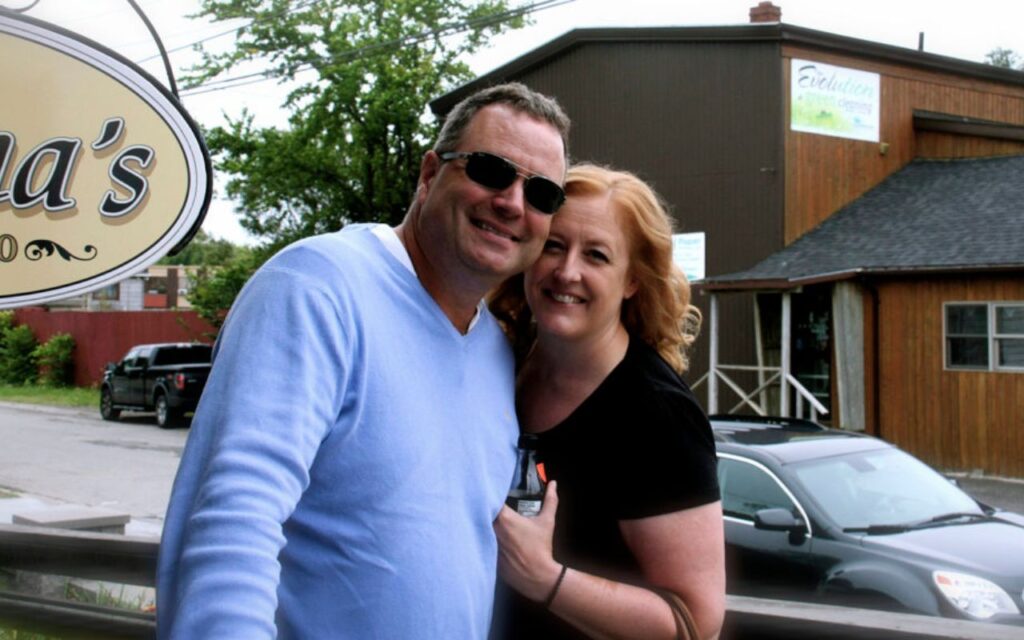
When Lisa Raitt first joins our Zoom call, we make small talk and chat idly about the weather.
“I’m in Cape Breton today,” she tells me, the large window behind her capturing a more tranquil backdrop than my own cityscape.
Coincidentally, Cape Breton is where she and her partner Bruce got married back in 2016 — the topic for the day’s conversation.
“I hadn’t intended on getting married,” she says, describing the makeup of her family — she and her partner Bruce, who have been together since 2009, and her two kids from her first marriage. “I was happy living together; I didn’t really feel it was necessary.”
But something else happened in 2016 that would change not only her outlook but the course of their life together: Bruce would be diagnosed with young-onset Alzheimer’s.
Spotting the signs
It was Bruce’s workplace that initially noticed he was struggling. Once a confident executive and CEO, Bruce began to display symptoms like forgetting meetings, being unable to navigate airports when he would travel for conferences, having trouble with reports, and failing to grasp concepts during negotiations.
He started to bring someone with him when he would travel and would have to take pictures of his car at Pearson Airport to remember where he left it. Eventually, it also began affecting his public speaking.
“They were on the verge of letting him go,” explains Raitt, who had also started noticing a shift in Bruce.
The pair visited a doctor in January 2016, still not thinking the worst, and were recommended to see a specialist that March.
“I did a search on the doctor that we were seeing, and it was a gerontologist,” says Raitt. “And I remember saying, ‘Why is Bruce seeing a gerontologist?’ Still, nothing clicking in my brain.”
It was only once they arrived at the appointment that Raitt says she realized Bruce was being tested for Alzheimer’s.
“Within an hour, I had a doctor sitting me down and telling me that Bruce, in all likelihood, had young-onset Alzheimer’s,” she says. “And then the bottom fell out of the world.”
Fight or flight mode
As Raitt delved into the complexities of caregiving, the dynamics of her relationship with Bruce began to shift.
“I went from being his partner to taking on the role of decision-maker in everything,” she says. Tasks as mundane as ordering food turned into necessities as Bruce’s ability to manage everyday decisions faded.
Raitt also organized their wedding in 2016, knowing that Bruce had always wanted to get married, and understanding that with his new diagnosis, he would need legal protection and a partner by his side.
She also became responsible for home maintenance, mowing the lawn, and managing all of their household finances — later discovering that Bruce hadn’t paid his taxes in three years.
“You become like a mom where you’re helping clean them and laying out their clothing, but at the same time, you are their partner, and you can be on the receiving end of their anger and frustration,” she says.
As Raitt explains it, it’s a hard reality for anyone to understand unless you’ve lived it yourself.
“You no longer have the luxury of saying, ‘In the next five years, we’re going to do this and this and this, and we’re going to buy a place in Florida and retire.’ Now my world is: in the next five years, he’s going to decline, he’s going to lose his ability to wash and bathe himself, and he may die,” she says.
“And that’s a completely different world. So you pivot from one of happiness, hope, and thought of the future to one of every year that goes by gets worse.”

Finding balance
As their family was coping with Bruce’s diagnosis, Raitt was still an active Member of Parliament and serving as the deputy opposition leader for the Conservative Party. Luckily, she says, she was able to reduce her workload as she was balancing her career with caregiving for Bruce.
“The days I would go in, I would bring Bruce with me and have my staff sit with him and help him. Those were essential things to happen,” she says. “That’s what got me through 2016, 2017, and 2018.”
After changing careers in 2019 following the loss of her seat — and with the pandemic in early 2020 forcing many to work from home — Raitt was able to be at home with Bruce, which was helpful timing as he began to decline more rapidly. Bruce would eventually move into a facility in 2021, where he lives today.
As Bruce’s condition progressed, the emotional toll intensified. Raitt describes the overwhelming sense of isolation that often accompanies caregiving as “the worst feeling imaginable.”
“You just want your world as small as possible because the rest of the world is super scary, and there’s so much going on at home that there’s no time for outside space,” she says. “Then if you get to the point where I am, and a lot of people are, where your loved one is in care, it’s isolating again because you’re a widow … but you’re not really a widow.”
A lasting partnership
Yet amidst the struggle, there were moments of clarity and unexpected strength. Raitt discovered a deep reservoir of patience within herself, a quality she had to cultivate as she adapted to her new reality.
She also found places to turn for help when she needed it most, relying on her network of family, friends, and a weekly support group where she could connect with others in a similar situation.
“It’s funny … I can speak about the factual implications, tell you the story about what happened, paint the picture for you, but I’ll never tell you the emotions I went through,” she says. “That’s the part I keep for myself.”
Even with the burdens she carried, Raitt tells me about the small pleasures she’s found along the way — watching her sons play basketball, attending comedy shows, and indulging in guilty pleasures like reality television. “Those moments are precious, even if they’re rare,” she says with a laugh.
Now, as she looks toward the future, her commitment to Bruce remains unwavering, as is her commitment to speaking openly and honestly about young-onset Alzheimer’s and the impact it carries.
“One thing that has surprised me is how I’m still so connected to him emotionally and that I don’t see him as a shell of his former self,” she says. “I don’t pine for what I miss or what we’re missing because I love the guy for what he is. It may be a different kind of love than before, but it’s there.”





